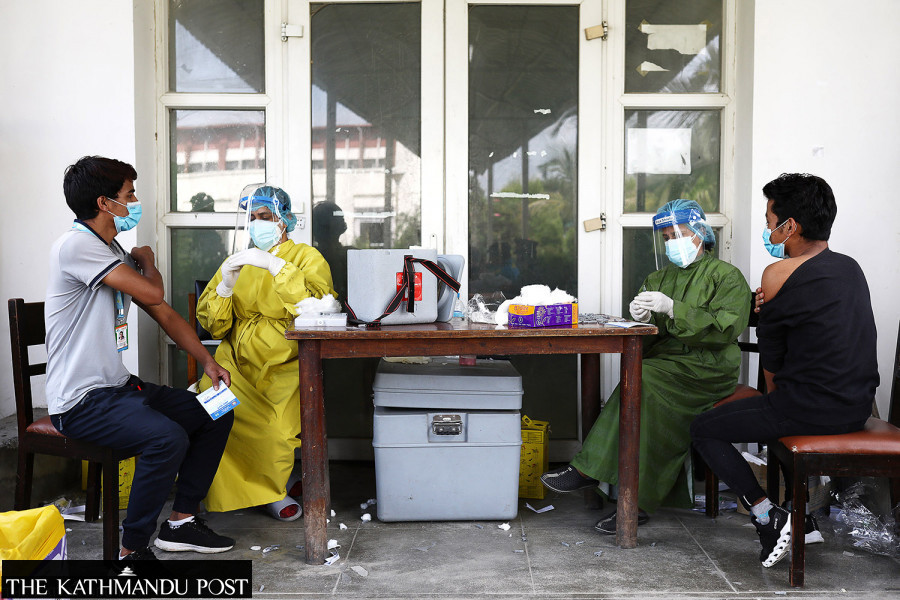National
Covid vaccination: Government knows how many people were jabbed but does not know who they are
If you lose your vaccination card, it is highly likely you will not get a copy of the card.
Arjun Poudel
It has been found that the Ministry of Health and Population only knows how many people received the first, second and booster doses of Covid vaccine, but has no information on who those people are, and how many people are still unvaccinated.
This means if someone loses their vaccination card provided at the vaccination centre, they cannot get a copy of the card from the authorities.
Officials at the ministry said they are working to improve the record-keeping to address the issue.
“We are working to make our record-keeping, especially one related to Covid vaccination, more effective,” said Dr Bibek Kumar Lal, director at the Family Welfare Division of the Department of Health Services. “People need vaccination records for various purposes including for going abroad. So we are planning to update our records.”
Proper record keeping has always been problematic in Nepal’s health care sector and public health experts had, since the start of the vaccination, stressed the need for proper record-keeping. It has been learnt that the health authorities do not have a proper record of Covid vaccine doses supplied to the districts. As a result, hundreds of thousands of doses are still unaccounted for. Although the government formed a panel, it could not trace the vaccine doses.
“Success of any programme depends on the real time data,” said Dr Senendra Raj Upreti, former secretary at the Health Ministry. “Our failure to maintain vaccination records is an example of how inefficient our bureaucracy is.”
The Covid vaccination card that the government provides has the name, age, the type of vaccine and the date of administration. People have to produce the same card when they go for their second dose. Since the government only issued vaccination cards without keeping the record, people who have lost their cards are facing problems getting their second doses. Some people who lost their vaccination cards are learnt to have taken their second jabs saying they were unvaccinated.
“When the vaccine for the second dose was in short supply, many people took jabs claiming that it was their first dose and the government had no record to verify the claim,” said Dr Roshan Pokhrel, secretary at the Health Ministry. “Still 30 percent of the health facilities are not updating vaccination data on time.”
The Health Ministry, however, claims that its staffers are regularly provided training on record-keeping.
“Resource crunch, workload issues and unreliable internet in many districts are affecting proper record-keeping,” said Pokhrel.
Experts say real time data on vaccination is crucial for formulating plans and policies and making them successful.
“Record keeping is the basic duty of the authorities,” said Dr Padam Bahadur Chand, former chief of the Policy Planning and International Cooperation Division at the Health Ministry.
Many countries throughout the globe have been keeping digital records of the health care services including vaccination properly. Doctors in Nepal say had the authorities concerned paid little attention to maintaining records, it would not have been any problems.
“We also have to make the record keeping system effective and can do it,” said Lal, director at Family welfare Division.




 16.12°C Kathmandu
16.12°C Kathmandu














